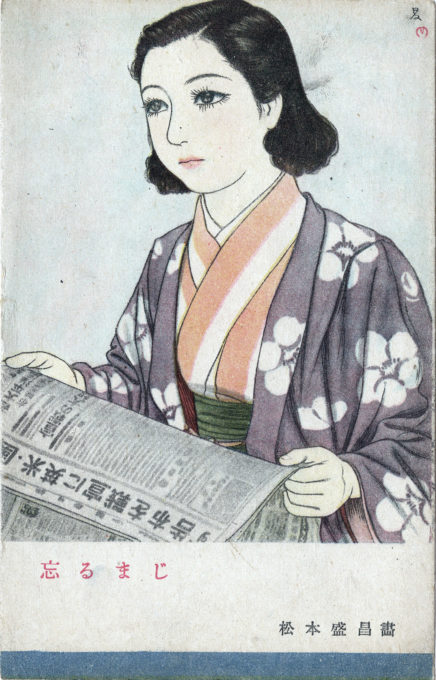To ensure the stability of East Asia and to contribute to world peace is the far-sighted policy which was formulated by Our Great Illustrious Imperial Grandsire [Emperor Meiji] and Our Great Imperial Sire succeeding Him [Emperor Taishō], and which We lay constantly to heart.
To cultivate friendship among nations and to enjoy prosperity in common with all nations, has always been the guiding principle of Our Empire’s foreign policy. It has been truly unavoidable and far from Our wishes that Our Empire has been brought to cross swords with America and Britain.
… Moreover these two Powers, inducing other countries to follow suit, increased military preparations on all sides of Our Empire to challenge Us. They have obstructed by every means Our peaceful commerce and finally resorted to a direct severance of economic relations, menacing gravely the existence of Our Empire. Patiently have We waited and long have We endured, in the hope that Our government might retrieve the situation in peace.
But Our adversaries, showing not the least spirit of conciliation, have unduly delayed a settlement; and in the meantime they have intensified the economic and political pressure to compel thereby Our Empire to submission. This trend of affairs, would, if left unchecked, not only nullify Our Empire’s efforts of many years for the sake of the stabilization of East Asia, but also endanger the very existence of Our nation.
The situation being such as it is, Our Empire, for its existence and self-defense has no other recourse but to appeal to arms and to crush every obstacle in its path.
– Translated from the “Imperial edict [by Emperor Showa] of a Declaration of War by the Empire of Japan on the United States and the British Empire”, first published December 8, 1941.

“Do not forget” [忘るまじ], Imperial Rescript for the Declaration of War, propaganda postcard, c. 1942. The emperor’s declaration of war against the United States and the British Empire was first printed on the front page of all Japanese newspapers’ evening editions on December 8, 1941. The document was subsequently republished on the eighth day of each following month throughout the war (until Japan surrendered in 1945), and was communally recited during neighborhood association gatherings every month on the 8th, to re-affirm the national resolve and public support for the war.
See also:
Attack on Pearl Harbor propaganda postcard, c. 1942.
“Patriotic March” (“Aikoku koshinkyoku”) propaganda postcard, c. 1942.
“Greater East Asia Co-Prosperity Sphere” propaganda postcard, 1942.
“In the first three years of the Pacific War (1941-1945), even when Japan’s military fortunes began to sag, the general population remained patriotic and supported the war effort. The nationwide system of collective responsibility represented by the neighborhood associations and community councils may help explain this, because these institutions not only subtly shaped the behavior of wartime Japanese but also served to keep them in line.
“… Consider, for example, the cycle of daily, weekly, and monthly meetings, drills, and rituals that took place in each neighborhood. Every month began with War Remembrance Day on the eighth, when families turned on their radios to hear a broadcast of the imperial receipt that announced the start of the war.
“Often families in a neighborhood association gathered at the local shrine, where the rescript was read aloud and they prayed for their country’s success in the war. Schoolchildren were asked to stand at attention while the imperial rescript was read.
“… This self-policing intensified as the war continued. On December 8, 1943, the second anniversary of the start of the Pacific War, Sakamoto and her husband commemorated the event with what she called ‘dawn mobilization’:
‘To commemorate the second anniversary of the start of the war, we performed the ritual reading of the emperor’s declaration of war rescript. Beginning with the head of the community council and including adviser Uehara; my husband, who was the deputy head; Nakahado, the head of the savings section; and Miyamoto, the head of the housewives’ section – everyone offered their opinions about the decision for war, and at the end, we shouted ‘banzai’ three times, and the meeting broke up at 7:40 a.m.’ “
– Daily Life in Wartime Japan, 1940-1945, by Samuel Hideo Yamashita, 2015


Pingback: Early victories of the Great East Asia War, propaganda postcard series, c. 1942. | Old TokyoOld Tokyo